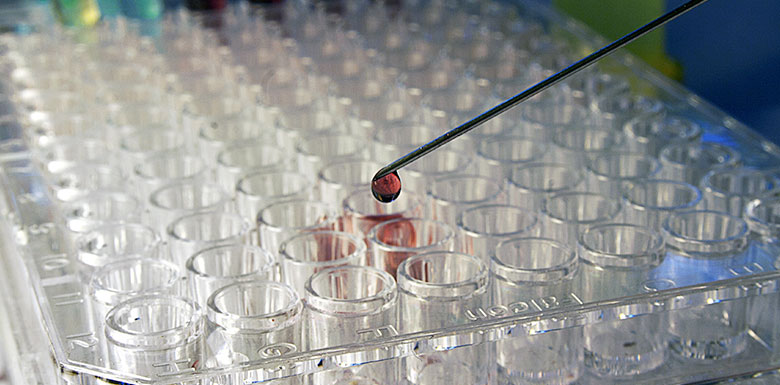
Topic: Criminal Defense, Fraud
To succeed in business often requires a measure of self-promotion and puffery. No matter how good your products and services are, you won’t sell them unless you know how to get noticed. But if you take it too far, you may find yourself in trouble with the law. Elizabeth Holmes, the founder of Theranos – a Silicon Valley darling that she ran with her partner, Ramesh Balwani – certainly knew how to get noticed. Holmes’ effective pitches for the company’s blood testing technology attracted hundreds of millions of dollars and a corporate board composed of former diplomats, politicians, and generals.
But there was one problem: Theranos never produced a blood testing device that functioned as well as Holmes and Balwani claimed. For this reason, authorities believe that the claims they made to investors about the company’s technology were fraudulent. But Holmes, Balwani, and their legal team maintain that they merely did what businesses across the country have always done — paint the best picture possible when discussing their company’s products and prospects.
As an entrepreneur or business owner, you know that the line between unlawful lies and effective public relations is often hard to spot. If the authorities are investigating you or your business for fraud, call an NYC criminal defense lawyer from Protass Law PLLC today at (212) 455-0335 for a consultation, or reach out through the online form.
Did Holmes and Balwani Commit Fraud?
The verdict is still out about whether the two Theranos executives committed fraud. But the publicly-available evidence indicates that they may have.
Fraud is committed when you knowingly and intentionally mislead another person through an act, statement, or omission, and that person relies on your misleading conduct to their detriment. As applied to the statements they made about Theranos, Holmes and Balwani may well have crossed the line from innocent puffery to unlawful fraud because all of the elements necessary for a fraud charge seemingly have been satisfied:
Knowingly Misstating Facts
Holmes and Balwani were intimately familiar with Theranos’ blood testing equipment and knew that it was only partially functional. Yet they told investors, customers, and the press that their device was fully operational. Also, Theranos contracted with Walgreens to provide blood testing services to its customers at its bricks-and-mortar pharmacies. But Theranos performed those tests using standard blood testing equipment manufactured by other companies, not their own equipment, because Theranos’ products weren’t able to perform the tests offered to Walgreens’ customers. Taken together, these facts tend to evidence an intent to deceive Walgreens (and Walgreens’ customers) about how well Theranos’ blood testing device actually worked, and to profit from that deceit.
Victim’s Reliance
Many people relied on the purportedly misleading statements that Holmes and Balwani made. From Walgreens, which contracted with Theranos, to investors who poured hundreds of millions of dollars into Theranos, many people believed the lofty promises made about the company’s ostensibly revolutionary blood testing technology. Indeed, Theranos raised over $700 million dollars from people eager to cash in on the promises that Holmes and Balwani made.
Victims’ Losses
Because of the amount of money Holmes and Balwani raised based on the statements they made about Theranos, the amount of financial loss is huge. Anyone who invested any amount in Theranos saw that investments wiped out once it became clear that Theranos did not have the technology they claimed to have. Walgreens also suffered because it entered into a contract with a company that could not perform the services that they said they could perform.
The Theranos story is still not over, with litigation pending in both civil and criminal court. Holmes and Balwani faced an investigation by the Securities and Exchange Commission (SEC). Rather than face a lawsuit from the SEC, Holmes settled. But Balwani did not, and his trial is forthcoming. Also, Theranos’ investors sued for fraud; the company settled out of court. And, perhaps most significantly, federal prosecutors have charged both Holmes and Balwani with fraud. If convicted, each could face up to 20 years in prison.
How a New York Fraud Lawyer Can Help
Despite the overwhelming evidence against Theranos and its executive team, a conviction on fraud charges is by no means a foregone conclusion. Fraud cases are extraordinarily complex and particularly difficult to prosecute. A skilled attorney knows how to find and where to look for weaknesses, and can often find ways to punch holes in a prosecutor’s case. This is especially true when it comes to the issue of whether or not the individual charges with fraud had the requisite intent to commit the charged fraud. In the Theranos case, the defense lawyers for Holmes and Balwani likely will look to demonstrate that the two former Theranos executives legitimately believed that the company’s technology worked and that they were not as familiar with the inner workings of their company as the prosecution claims.
If you or your company is facing an investigation involving allegations of fraud, act now and call Protass Law PLLC for help. Contact us today at (212) 455-0335 to schedule a free and confidential consultation on your case.